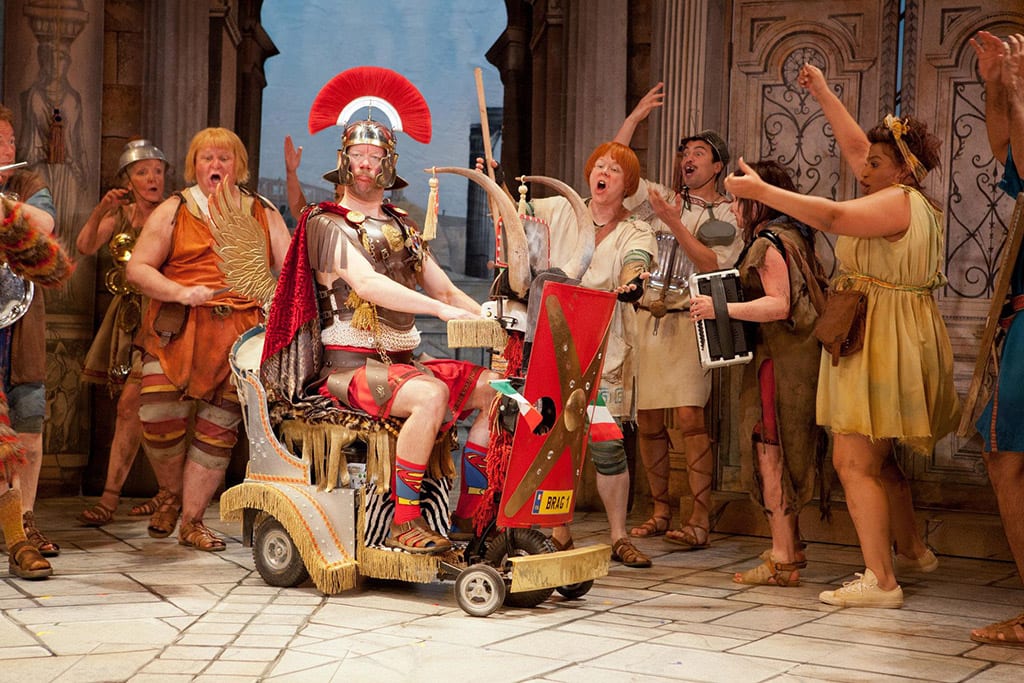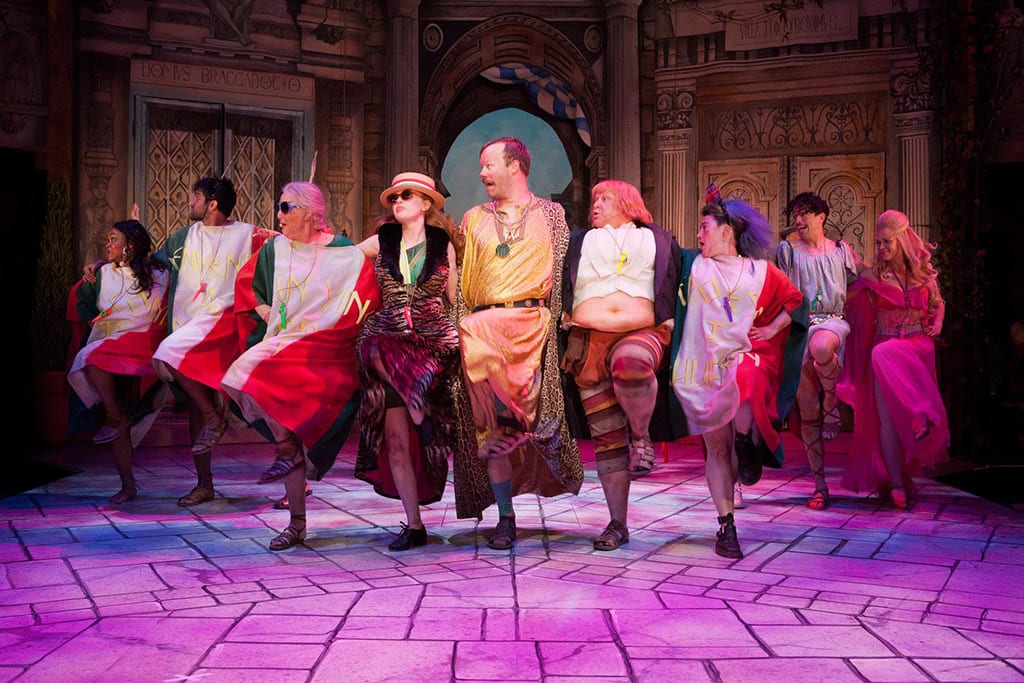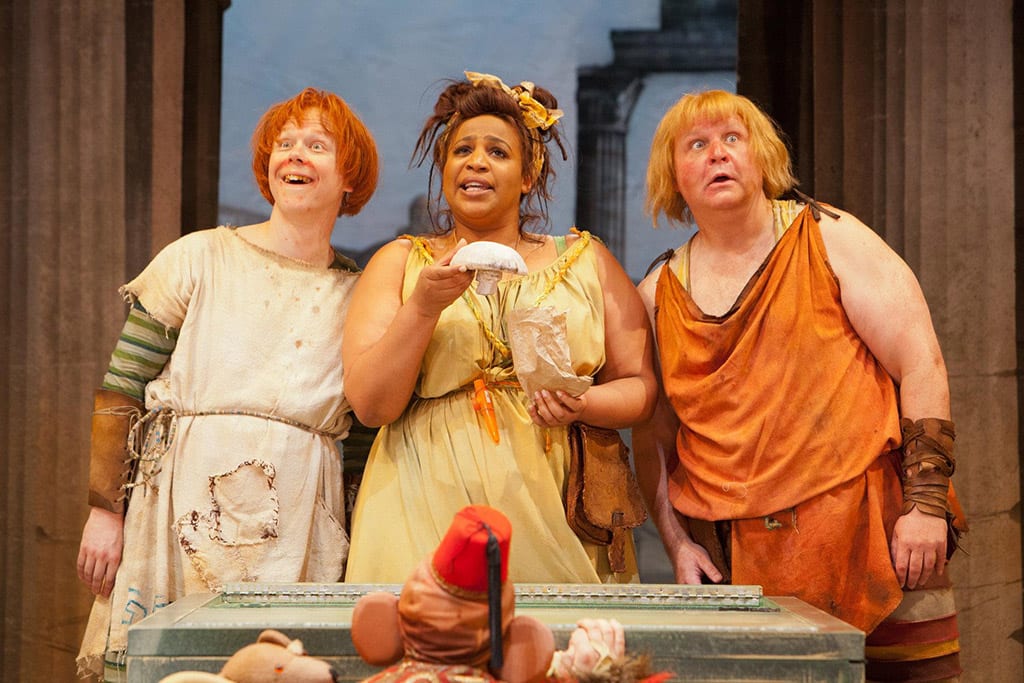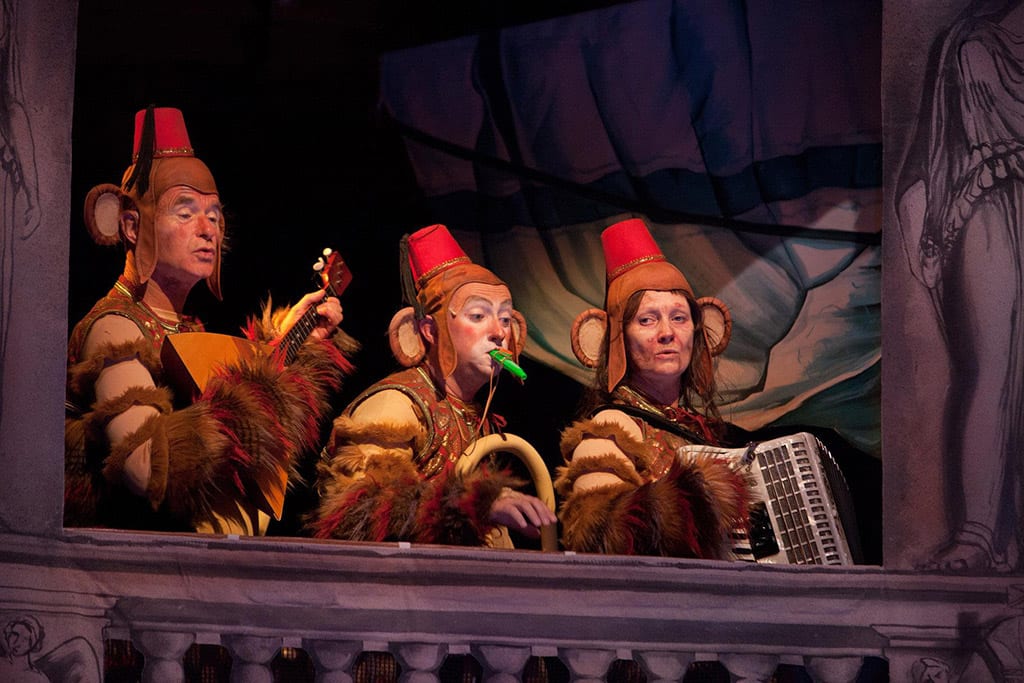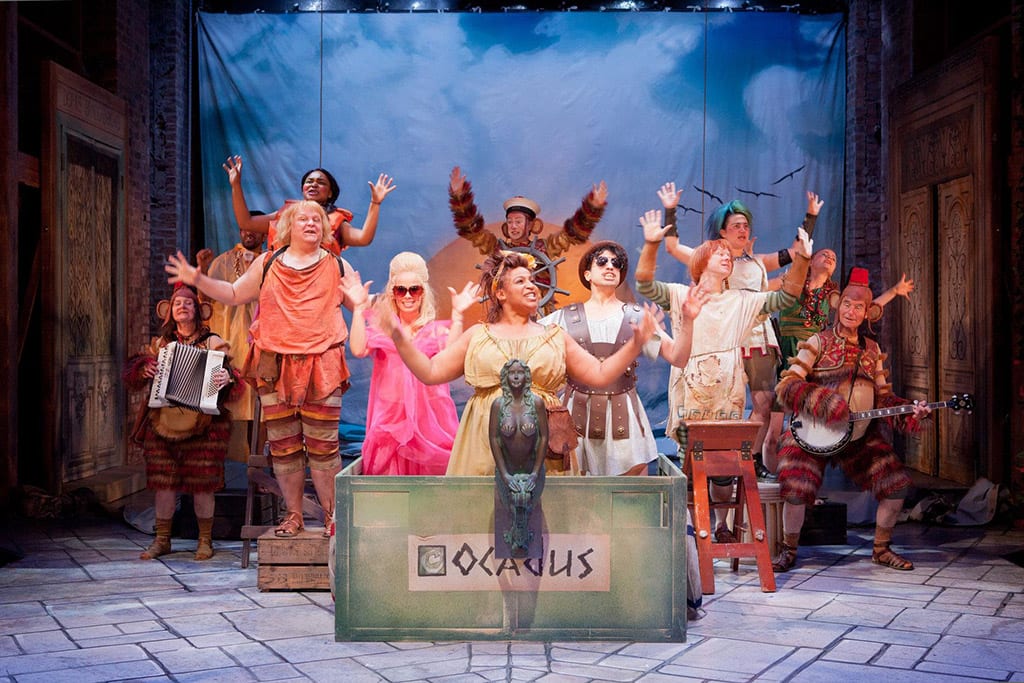Vice Versa is a lot of fun, a romp of a production, and I can see, intellectually, how it is a considered pastiche of old Roman Comedy and why it is such a success. It is performed with enormous energy and by a committed cast of actors who clearly take a real delight in all the vaudeville-cum-pantomime elements of the genre. But for this one, I am afraid that, though I had a lot of fun and some very hearty chuckles, it just somehow missed the mark and did not hit me squarely in my taste buds.
You’ve seen it done before – as the programme points out, in Shakespeare’s The Comedy of Errors, for a start; and also in Stephen Sondheim’s musical (with a brilliant book by Larry Gelbart and Burt Shevelove) A Funny Thing Happened on the Way to the Forum. The problem for me is that I have always found both of these rip-offs of Plautus hilariously funny and pertinently satirical as well as delightfully farcial. By comparison, I found Phil Porter’s script pleasant enough but tame, unadventurous, too much a direct pastiche – more like a very energetic episode of Up Pompei that had had extra budget thrown at it. I think that that is what was intended; and if you find this kind of humour a killer, then you will be rolling in the aisles gasping for air. I gather there have been performances where this has happened to the majority of the audience.
The matinee that I attended certainly had an appreciative audience, and there were lots of chuckles. But no one rolled in the aisles in Part One. I myself was mildly disappointed, expecting something that would take over my view of the world more thoroughly, take me out of myself and my worries about the state of politics today. However, having had the interval and gone back with a better idea of the level of the humour, I was much more pleased with the second half. Act One is the set up; Act Two is full of the pay offs. But they are also too much the expected payoffs. The Comedy of Errors and Funny Thing are full of more genuine surprises and wittier twists. Perhaps Porter was simply following the old plots a little too closely?
There is no question that the centre of the show is, as it should be, as it was with Frankie Howerd and Zero Mostel, the crafty slave/narrator Dexter, played with superb accomplishment and charm by Sophia Nomvete. She engages the audience from the start with her enthusiasm and one of the glintiest glints I have seen in an eye; and she certainly knows how to sing, dance, act and be a stand-up comic all in one show as required with impeccable timing. Her routine at the start of the second act when Phil Porter is sending up the punning tradition of Roman comedy is impeccably handled. I really liked the young lovers. Ellie Beaven as Voluptua and her supposed twin sister is both attractive and smart, a not-so-dumb blonde; and Geoffrey Lumb’s Valentin is delightfully dorky and complaisant. Jon Trenchard makes an attractive, amusing pet monkey and Nicholas Day as the crafty neighbour is just fine. Special praise to Kim Hartman as the prostitute. There is some real emotion portrayed by her and Nicholas Day at the end. The entire cast is uniformly professional, preposterous and completely in keeping with the ethos of the show. I felt sorry for Steven Kynman as Feclus and Byron Mondahl as Omnivorous when they had to spend quite a lot of time immured in a box.
Janice Honeyman obviously has a lovely feeling for the sheer, low taste vulgarity and vaudevillian humour of the piece; and for the pacing and blocking of all the farcical, physical action; and Colin Richmond’s design evokes that kind of setting that Plautus used. I like the music, especially the song about Rome in the second half – lyrics by Phil Porter and Sam Kenyon, and all the music of the play by Sam Kenyon. You will come out humming some of it and even humming a lot of the action, as it were.
For me though, in the end, unlike Shakespeare and Sondheim/Gelbart/Shevelove, Phil Porter did not develop the characters far enough beyond being mere stereotypes. It engaged my funny bones but not my intellect or my emotions. This was especially true of Felix Hayes’s General Braggadocio, who mugged outrageously and hammed it up far too much for my liking. He has a fine deep voice and a very mobile face and body, and he was clearly working his sandals off with technical aplomb. Perhaps my misgivings and slight sense of the play’s being off target a bit are merely a matter of taste?
That said, I think this is a fine effort and fits nicely into the Roman Season theme of this summer. It is a light and very accomplished evening of low-brow and farcical entertainment. It also has made me want to go back and read some of the original Roman comedies by Terence and Plautus, even to go back to a bit of Aristophanes and also probably to dig out my DVDs of The Comedy of Errors (the RSC version with Judi Dench and Michael Williams) and A Funny Thing Happened on the Way to the Forum.

